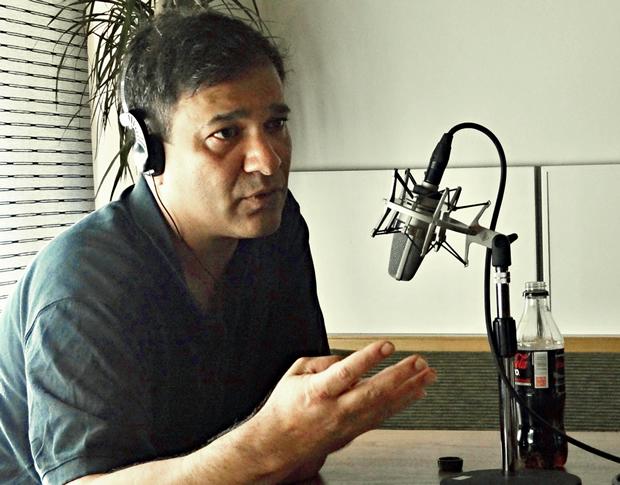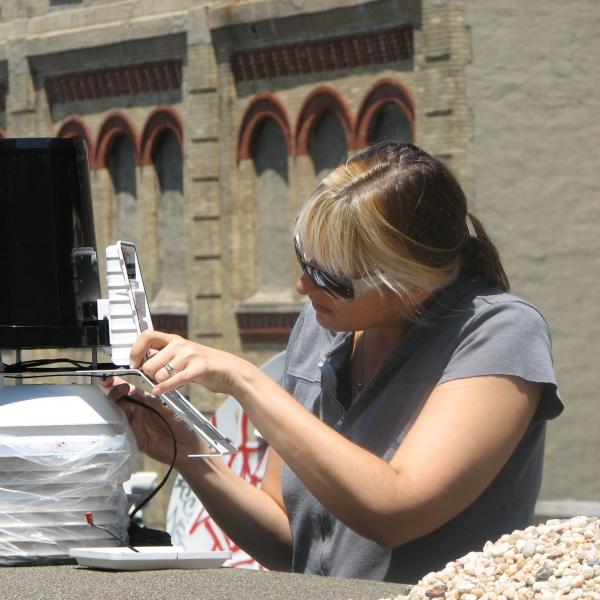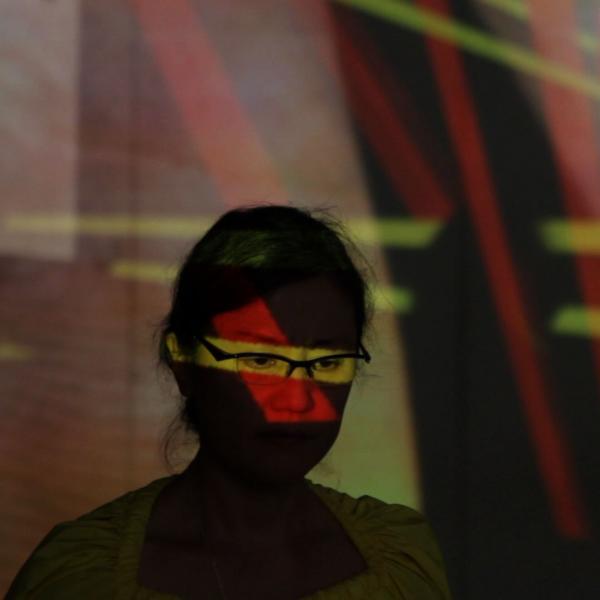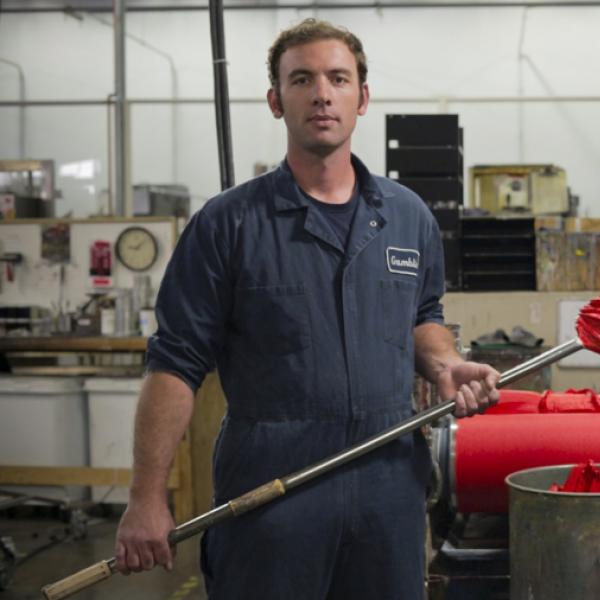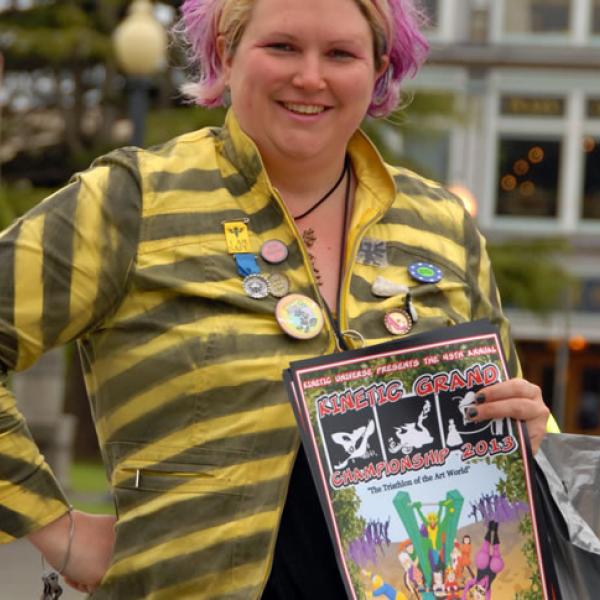3 QUARKS DAILY, NEA ARTS ONLINE
Abbas Raza: There should be no dividing line between science and the arts. I think they should all be taught as equally important intellectual activities
. And that’s what we have tried to do at
3QD; we try to find things that are interesting. It doesn’t matter what subject area they’re in.
Adam Kampe: That’s Abbas Raza, the founding editor of the filter blog
, 3 Quarks Daily, or
3QD. Welcome to
NEA Arts online. In this issue, we’re exploring the intersection of the arts and sciences. Blurring the line between these seemingly different worlds—art and science—is something
3QD does very well.
The original site praised by all sorts of heavy-hitting scientists such as Harvard professor Stephen Pinker and artists like David Byrne because it features such a unique and rich body of material. Just in the past month or so, I read an article about director Richard Linklater’s animated film,
Waking Life; I stumbled into a documentary about the enigmatic Argentine, Jorge Luis Borges; I saw an article about how the brain generates consciousness, “How the Light Gets Out” and then of course there’s the series of point/counterpoints called Science vs. the Humanities. Poetry, philosophy, politics; it runs the gamut. The short video documentary of starlings in flight is one small example of the kind of art-meets-science material you can find at
3 Quarks. Okay, now back to Abbas Raza. He’ll explain how the blog works.
Abbas Raza: I felt very strongly that we should include a lot of science because science is often neglected by the literary humanities crowd, and I felt very strongly that we should look at all intellectual fields including those of science and so we started doing this. And
3 Quarks kind of took off in its readership and we got more and more readers and also some very prominent names like Richard Dawkins who wrote to us saying, “I really love
3 Quarks,” and that thrilled us. He had been a kind of intellectual hero of mine since college when I had read
The Selfish Gene. And then we had other people writing to us and that encouraged us more and we became more and more serious about it and we added a weekly news magazine. So on Mondays we don’t do our normal filtering of the web, which we do on all other six days. On Mondays we have only original writing by ourselves, the editors of
3 Quarks of which there are six, and also we have writing by guest columnists and other guest writers; normally between four and eight articles every Monday of original writing we publish. So
3 Quarks became, at that point, it became two things; the filter blog and the filtering of the intellectual content of the web and also a weekly magazine of original writing. And it continues to do both of those things. We’ve produced thousands of original articles now in addition to our filtering of the web and some of them have been reprinted in very well-known newspapers and magazines and so on.
I think much of the variety of things that we have on a daily basis comes from the different interests of the different editors. Morgan Meis, for example, is a well-known art writer. He writes a column for
The Smart Set. And he will often have focus on the visual arts and writing about all kinds of arts, actually. Robin Varghese, one of our other editors, has a PhD in political economy and focuses a lot on economics and politics. One of the editors is my sister, Azra, who is a doctor and an oncologist and also a very serious student of literature. So, she often posts on science as well as poetry. I, myself, am, as I said several times already, a kind of jack-of-all-trades intellectually. So, I post on a wide variety of things, but with a focus on philosophy as well as science and some politics.
By the way, one other thing that I should say is that people often ask me do you try to imagine what other people will find interesting because you have a specific background. You were born and grew up in Pakistan. You come from South Asia. You speak Urdu. So, maybe you have a great interest in Pakistani or Indian politics. But the majority of your audience by far is in America. And they might not. And do you worry about that? And whenever I’ve tried to imagine what my supposed audience might find interesting, I end up posting things that nobody finds interesting. The only—and each editor of
3 Quarks has said this to me separately at one point or another. And I feel exactly the same way, that the only way to post interesting things is to post things that you, yourself, find interesting. You can’t ever try to imagine what your audience is going to find interesting because you can’t. You can’t put yourself in the minds of some theoretical collection of people out there.
You know, if one thinks about it in terms of the three classical realms of knowledge, which is the aesthetic realm, the realm of beauty; the moral realm, the realm of good and evil; and then the realm of truth of knowledge itself; obviously all three are immensely important to all human beings. I mean, the Ancient Greeks realized this and this whole idea of stressing one thing over another and having these weird dividing lines between art and sciences and the whole two cultures thing, I’m just, you know, it’s so tiresome. And that’s what we have tried to do at
3QD; we try to find things that are interesting. It doesn’t matter what subject area they’re in.
Adam Kampe: That was Abbas Raza of
3 Quarks Daily. For more information, check out their new and improved website at
3QuarksDaily.com. And for more art + science stories, please peruse the rest of the
NEA Arts issue at
arts.gov. For the National Endowment for the Arts, I’m Adam Kampe.
MUSIC CREDIT:
Excerpts of “Tomie’s Bubblies” by Candlelight Gravity from the album, Junpel and “Aki’s Apple” by Plaistow from the album, Do You Feel Lucky? both found on WFMU’s Free Music Archive at freemusicarchive.org.
